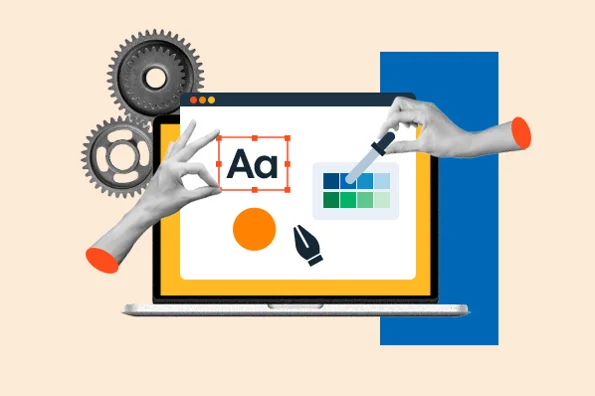If you’ve noticed an unfamiliar “SP AFF* charge” on your bank statement, you’re not alone. This mysterious charge has left many people wondering about its origin, legitimacy, and purpose. This article will provide a detailed breakdown of the “SP AFF* charge,” including how to identify it, why it might appear on your statement, and what to do if you believe it’s an error.
What Is the “SP AFF* Charge” on Your Bank Statement?
The “SP AFF* charge” is often linked to specific online services, subscription payments, or trials associated with e-commerce or digital products. Many businesses use this descriptor to bill customers, especially for services that require recurring payments or one-time purchases through digital platforms. However, it’s not uncommon for people to find these charges unexpected or unrecognized, raising concerns about potential unauthorized transactions.
Is the “SP AFF* Charge” Fraudulent? How to Know If You’re Safe
Seeing an unknown charge can feel alarming, but not all “SP AFF*” charges are fraudulent. Here’s how to tell if the charge is legitimate:
- Check Recent Purchases: Review any online purchases, digital services, or subscriptions you’ve recently signed up for, as many use generic billing descriptors like “SP AFF*.”
- Search the Descriptor Online: Look up the full charge descriptor on Google. Sometimes, this can lead to the company’s website or service that billed you.
- Contact Your Bank: If you’re still unsure, contact your bank for help identifying the source. They can verify if the charge aligns with recent transactions in your account.
If the charge doesn’t match any of your recent activity, it could indeed be unauthorized. In that case, you’ll need to report it to your bank to start a dispute.
Why Do SP AFF* Charges Appear on Bank Statements? Common Reasons Explained
Several common reasons could explain why an “SP AFF*” charge appears on your bank statement:
- Trial Subscriptions: Many online services offer trial periods with automatic renewal. If you forget to cancel, the “SP AFF*” charge may show up once the trial period ends.
- Subscription Services: Digital platforms or streaming services often use generic billing terms. The “SP AFF*” charge might relate to a subscription you signed up for.
- One-Time Purchases: Some e-commerce or app platforms list purchases with an “SP AFF*” descriptor, especially if bought through a mobile app store.
- Affiliated Charges: Some companies outsource billing or have affiliated billing services that show up as “SP AFF*.” These charges are linked to another service you used but billed through a different system.
Understanding these possibilities can clarify why the charge appeared and help you avoid future surprises.
Click here : https://digitaalz.com/
Steps to Dispute SP AFF* Charges on Your Bank Statement
If you’ve reviewed your transactions and still find the “SP AFF*” charge suspicious, it’s essential to dispute it promptly. Here’s how:
- Gather Your Information: Have your bank statement, transaction details, and any receipts related to your recent purchases ready.
- Contact Your Bank: Call your bank or financial institution to initiate a dispute. Explain the situation and provide details about the “SP AFF*” charge.
- Submit Documentation: Your bank might ask for proof of your spending or other details. Providing clear documentation will help expedite the process.
- Follow Up: Stay in touch with your bank until the dispute is resolved. They may provide a provisional credit while they investigate the charge.
Disputing unauthorized charges is usually straightforward, and acting quickly can help you get reimbursed if the transaction is indeed fraudulent.
How to Prevent Unwanted SP AFF* Charges on Your Account
To avoid unexpected “SP AFF*” charges in the future, follow these practical tips:
- Review Terms and Conditions: Before signing up for a service, read the fine print. Check if a free trial converts into a paid subscription automatically.
- Monitor Your Bank Statements Regularly: Review your bank statements each month. This habit helps you catch unknown charges early and prevent additional ones from recurring.
- Use Alerts: Many banks offer transaction alerts via email or SMS. Setting these up can notify you of any charges, especially for subscriptions.
- Cancel Subscriptions Promptly: If you no longer use a service, cancel it immediately to avoid recurring charges under the “SP AFF*” descriptor.
Being proactive about monitoring your finances can help prevent unwanted charges and save you the hassle of disputes later on.
Top 5 Reasons for Unexpected SP AFF* Charges and How to Resolve Them
Here are the top reasons for unexpected “SP AFF*” charges and how you can resolve each situation:
- Forgotten Subscription Renewals: Check your accounts on digital platforms for active subscriptions and cancel any you don’t use.
- App Store Purchases: Check your app store (Google Play or Apple App Store) purchase history, as some in-app purchases use “SP AFF*” as a billing label.
- Trial Period Conversions: If you signed up for a trial, look for automatic renewals that may bill you with an “SP AFF*” descriptor.
- Affiliated Billing Partners: Contact the company if you suspect the charge might be from an affiliated billing partner. They can verify if it’s legitimate.
- Potential Fraud: If the charge seems suspicious and unrelated to any service you recognize, contact your bank immediately to report potential fraud.
Resolving these issues as soon as possible can prevent further unauthorized charges on your account.
How to Contact SP AFF* for Clarification on Charges
Reaching out to “SP AFF*” directly isn’t always possible, as it often serves as a generic billing descriptor rather than a standalone company. Here’s how to gather more information:
- Check with the Vendor: If you recognize the vendor associated with the charge, contact their customer support directly. They can confirm if they used “SP AFF*” for billing.
- Ask Your Bank for Details: Your bank might have more insight into the specific charge. They can often contact the merchant to confirm the details.
- Search Online: Online forums and websites sometimes document common descriptors, helping identify other people’s experiences with the same charge.
With these methods, you should be able to find out more about any SP AFF* charges on your statement.
Understanding Recurring SP AFF* Charges on Your Statement
Recurring “SP AFF*” charges indicate that you’ve likely signed up for a service with an automatic renewal. Here’s what you should know:
- Identify the Source: Look for any digital subscriptions you might have forgotten, such as streaming services, cloud storage, or app memberships.
- Cancel Unused Services: Visit your account settings on these platforms to cancel the subscription.
Regularly reviewing your recurring charges can prevent small expenses from adding up unexpectedly.
Can SP AFF* Charges Affect Your Credit Score?
Generally, an “SP AFF*” charge itself doesn’t impact your credit score. However, if a charge remains unpaid or leads to an overdraft, it could have an indirect effect on your credit. Here’s how to prevent this:
- Monitor Account Balances: Ensure that unexpected charges don’t cause your account to go negative.
- Pay Disputed Charges Promptly: While disputing a charge, try to keep a positive balance in your account.
Maintaining control over your bank account activity is a key part of protecting your credit score.
SP AFF* Charge vs. Fraudulent Charge: How to Spot the Difference
To determine whether an “SP AFF*” charge is legitimate or fraudulent, consider these factors:
- Transaction History: Check your recent history for a match with the amount.
- Patterns in Spending: Fraudulent charges often appear in unusual amounts or at odd times. Look for red flags in the transaction’s timing or amount.
If you suspect the charge is fraudulent, contact your bank and report it immediately.
Conclusion: What You Should Know About the “SP AFF* Charge” on Your Bank Statement
Understanding the “SP AFF* charge” on your bank statement can prevent unnecessary stress and help you protect your finances. By identifying legitimate charges, disputing unauthorized ones, and taking preventive steps, you can stay in control of your accounts. Just as you would with How to Maintain Your Commercial Roofing System Year-Round, regular maintenance and monitoring are essential for your financial health. Keep an eye on your statements, act quickly if you notice suspicious activity, and remember that banks are there to assist you with clarifying and resolving these charges.







